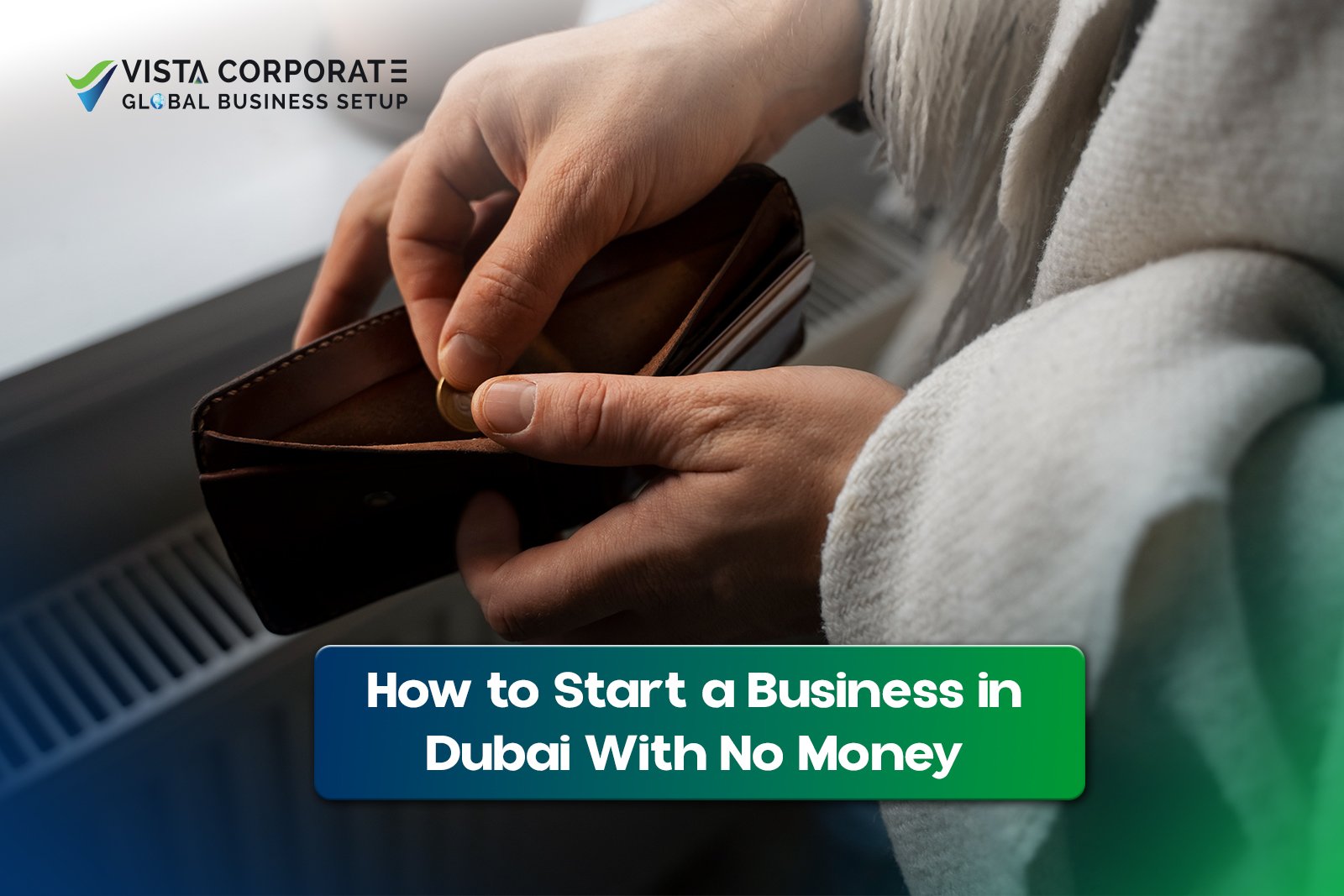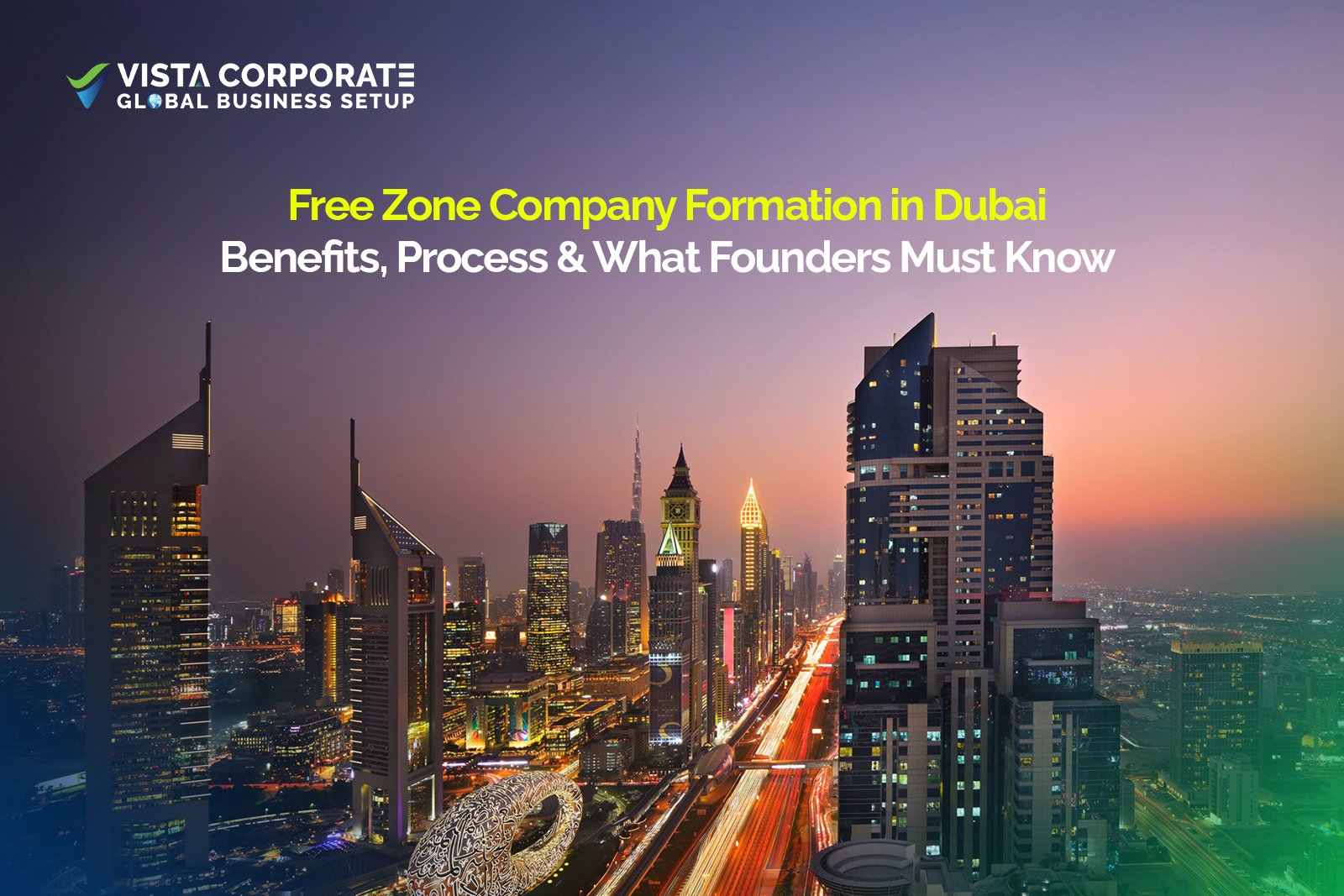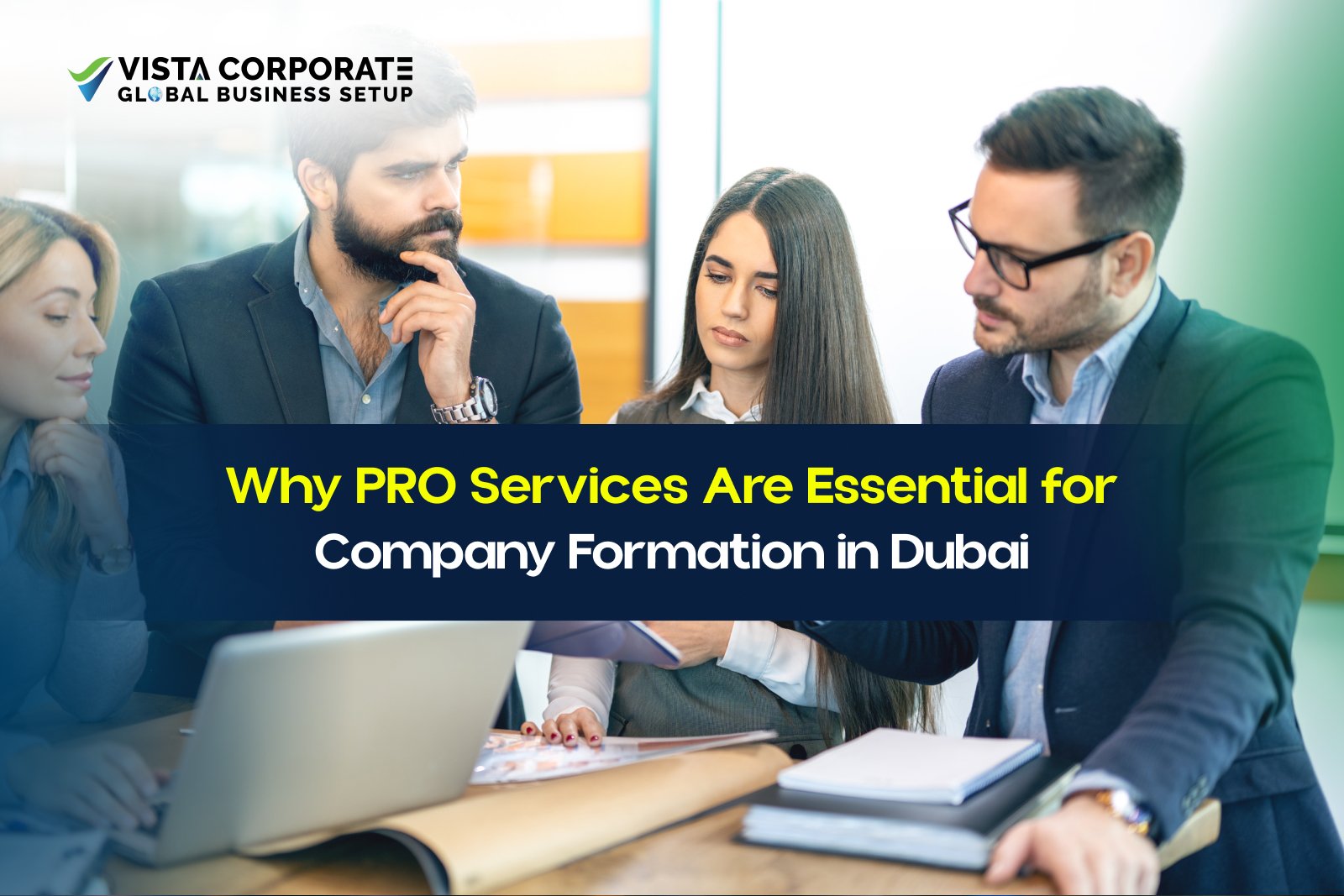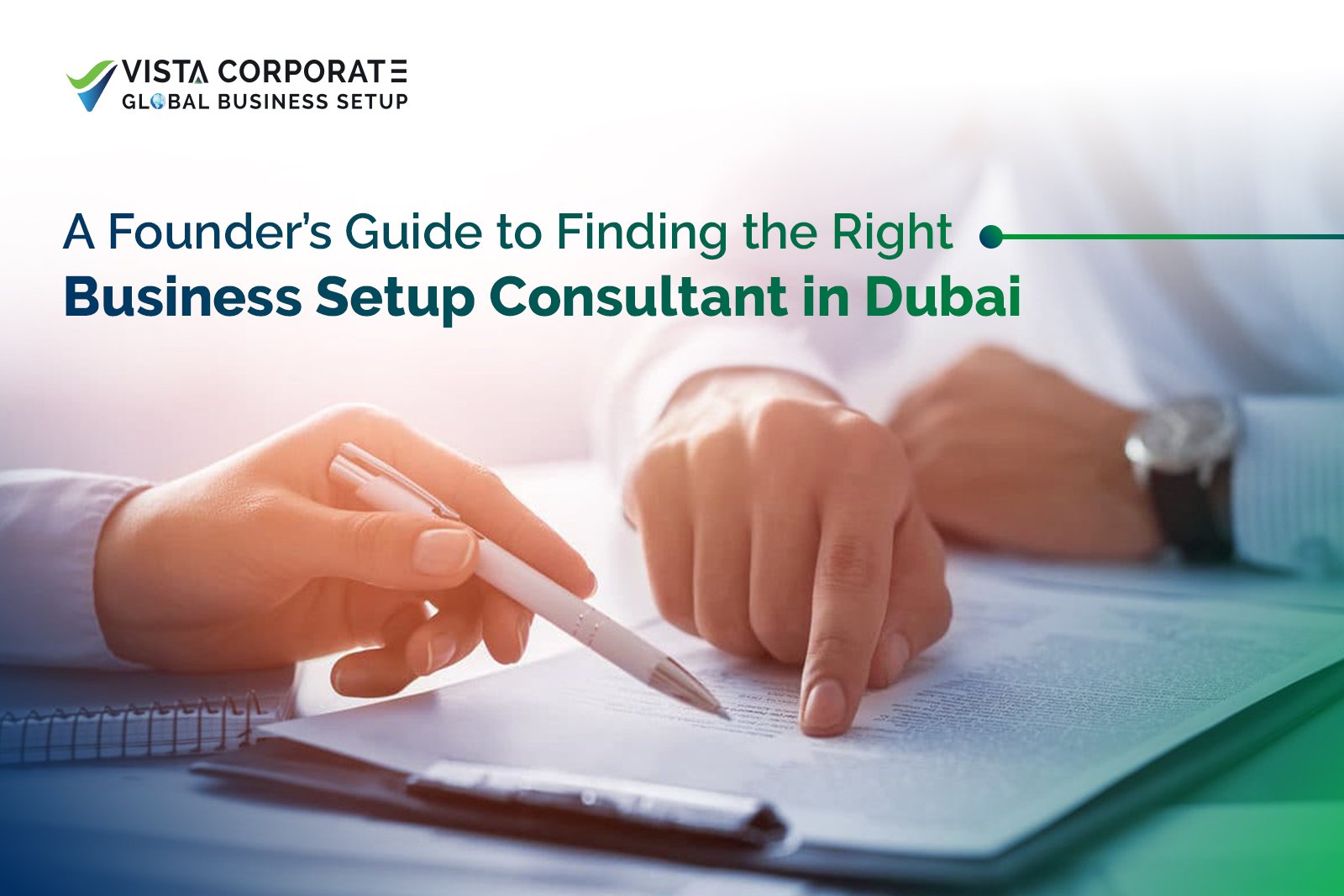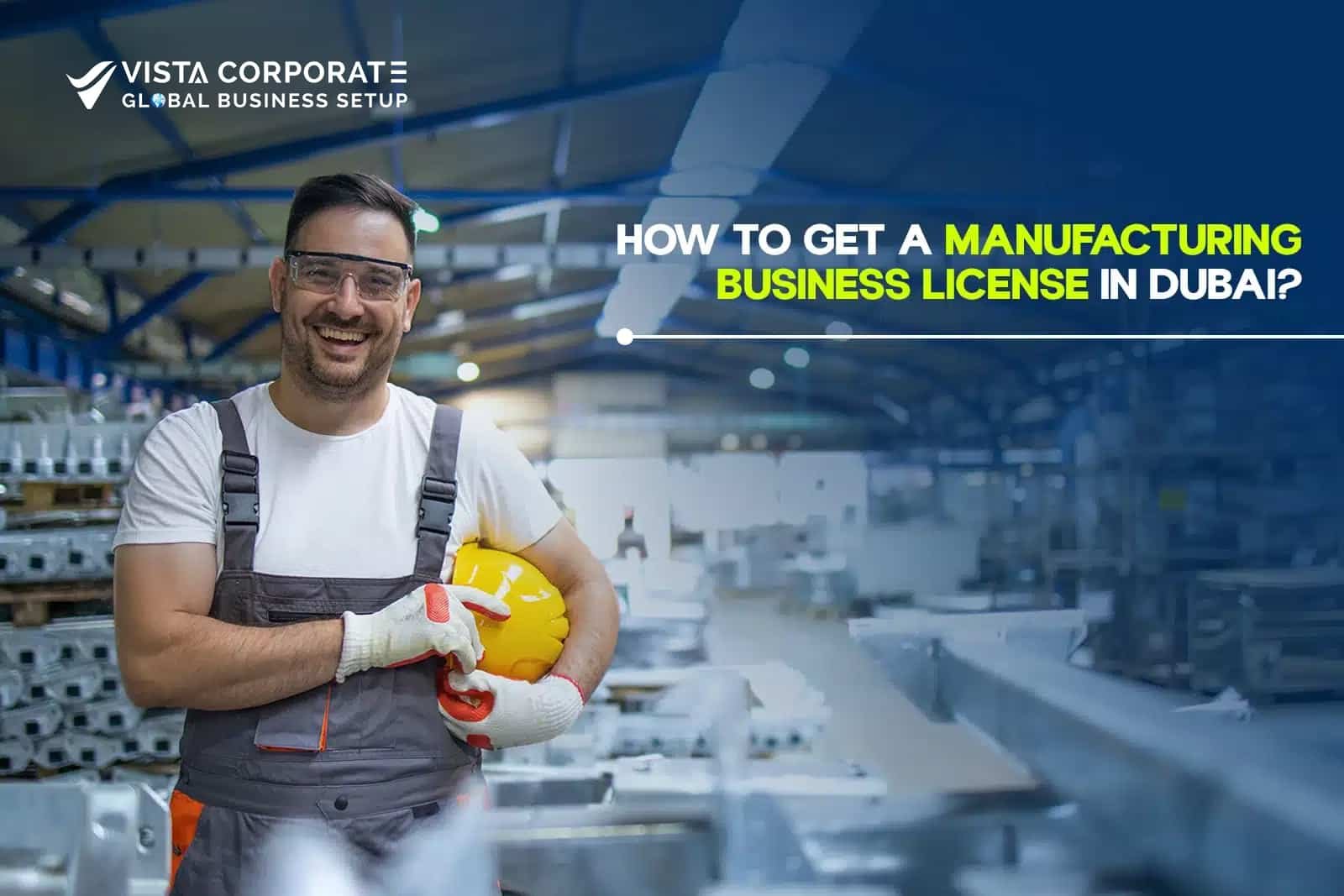
Manufacturing Business Setup in Dubai
Dubai has rapidly become one of the most attractive destinations for setting up businesses, and manufacturing is no exception. The UAE’s manufacturing sector is evolving with technological advancements, robust infrastructure, and government support. Whether you’re an entrepreneur, an investor, or a company looking to expand, Dubai offers incredible opportunities to establish and grow a manufacturing business.
But before you can start your operations, securing a manufacturing license in Dubai is an essential first step. This license is a legal requirement for any entity wishing to engage in manufacturing activities, whether it’s producing goods, machinery, or consumer products. Having a manufacturing license ensures your business operates within the legal framework of Dubai and complies with all regulatory requirements.
In this comprehensive guide, we will explore everything you need to know about obtaining a manufacturing business license in Dubai. We’ll cover the types of licenses available, the step-by-step process to acquire one, required documentation, costs, and much more. Whether you’re planning to set up a factory in a free zone or a mainland area, this guide will provide you with the knowledge you need to navigate the process smoothly.
Understanding Manufacturing Licenses in Dubai
What is a Manufacturing License?
A manufacturing license is a legal document issued by the Department of Economic Development (DED) or relevant free zone authority, authorizing a company to engage in manufacturing activities within Dubai. It is mandatory for businesses involved in the production, assembly, or processing of goods. Without this license, your manufacturing operations cannot legally take place, and you may face penalties or closure.
In Dubai, manufacturing businesses can operate under two main license types:
- Mainland Manufacturing License – Allows businesses to operate in the local Dubai market and engage with clients across the UAE.
- Free Zone Manufacturing License – Allows businesses to operate within designated free zones in Dubai, offering various incentives such as tax exemptions, full foreign ownership, and no import/export duties.
Why You Need a Manufacturing License in Dubai
A manufacturing license is not just a formality; it’s an essential requirement for several reasons:
- Legal Compliance: Operating without a license exposes your business to risks, including fines, legal action, or even closure.
- Market Access: A manufacturing license enables you to access local markets, supply chains, and retail networks.
- Brand Credibility: Being licensed increases your credibility with customers, suppliers, and investors.
- Employee Security: A licensed operation ensures your employees are working in a regulated and safe environment, meeting industry standards.
Types of Manufacturing Licenses in Dubai
Manufacturing businesses in Dubai can apply for one of two types of licenses, depending on their business model and objectives.
- Mainland Manufacturing License
- Definition: A mainland manufacturing license allows businesses to operate within the local market in Dubai. These licenses are issued by the DED, which is the government agency responsible for licensing mainland businesses in Dubai.
- Benefits:
- Access to a broader local market.
- Ability to trade directly with other businesses and customers in the UAE.
- Ability to set up a physical office or factory anywhere in Dubai.
- Limitations: Requires a local sponsor or UAE national partner, especially if you are a foreign investor.
- Access to a broader local market.
- Definition: A mainland manufacturing license allows businesses to operate within the local market in Dubai. These licenses are issued by the DED, which is the government agency responsible for licensing mainland businesses in Dubai.
- Free Zone Manufacturing License
- Definition: Free zone manufacturing licenses are issued by the authorities of the free zones in Dubai. These zones are specially designed to attract foreign investment and provide favorable conditions for manufacturing businesses.
- Benefits:
- Full ownership of your business (no local sponsor required).
- Exemption from customs duties on goods imported and exported from the UAE.
- Tax exemptions for a specified period (usually 15-50 years).
- Ability to hire workers without the need for a local sponsor.
- Limitations: Restricted to operating within the free zone area and cannot engage directly with the UAE local market unless you set up a branch or partner with a local distributor.
- Full ownership of your business (no local sponsor required).
- Definition: Free zone manufacturing licenses are issued by the authorities of the free zones in Dubai. These zones are specially designed to attract foreign investment and provide favorable conditions for manufacturing businesses.
The Role of Dubai’s Department of Economic Development (DED)
The Department of Economic Development (DED) plays a pivotal role in regulating and issuing business licenses for mainland businesses in Dubai. For manufacturers wishing to operate on the mainland, the DED ensures compliance with all local laws and regulations related to business setup, labor, and commercial activities.
In addition to issuing manufacturing licenses, the DED provides:
- Support for business registration and formation.
- Regulation of business activities to ensure conformity with local standards.
- Issuance of trade licenses, including manufacturing, for businesses operating in Dubai.
The Process of Obtaining a Manufacturing License in Dubai
Step-by-Step Guide to Obtaining a Manufacturing License
The process of obtaining a manufacturing business license in Dubai can be broken down into several clear steps. This guide will walk you through each stage, helping you understand what is required and how to make the process as smooth as possible.
Step 1: Determine the Type of License
The first step is to decide whether you want to operate under a mainland or free zone license. Here’s how to choose:
- Mainland License: Best if you want to have a presence outside the free zones, including the ability to work directly with clients in Dubai and across the UAE. However, mainland licenses require you to have a local sponsor (a UAE national) who owns 51% of the business.
- Free Zone License: Ideal if you’re a foreign investor looking to maintain 100% ownership and benefit from tax exemptions. Free zones also offer a more streamlined process for setting up your manufacturing operations.
Step 2: Prepare the Necessary Documents
Once you’ve decided on the type of license, you’ll need to gather several documents before applying for your manufacturing license. These documents will vary depending on whether you’re applying for a mainland or free zone license, but here are the common documents required:
- Business Plan: A detailed plan that outlines your manufacturing process, types of products, and market research.
- Passport Copy: For all company partners and investors.
- Proof of Address: For the business location.
- No Objection Certificate (NOC): If you’re an expatriate, you’ll need an NOC from your current sponsor.
- Trade Name Reservation Certificate: A certificate confirming your business name is available and not taken by another company.
- Initial Approval Certificate: From the DED or free zone authority.
Step 3: Submit Your Application
Once you’ve prepared all your documents, you can submit your application for approval. Here’s how the submission process works:
- Mainland License: Submit your documents to the Department of Economic Development (DED). You’ll also need to submit your trade name and get approval for your business activity.
- Free Zone License: Submit your documents to the free zone authority where you wish to operate. Each free zone has its own requirements and guidelines for manufacturing businesses.
Step 4: Approval and Issuance of License
Once your application is reviewed, the relevant authority will either approve or request additional information. Once approved, your manufacturing license will be issued, allowing you to begin operations. Typically, the approval process takes a few weeks, but the time frame can vary depending on the zone or authority.
Step 5: Register for Other Legal and Operational Permits
After obtaining your manufacturing license, you will need to register for other necessary permits:
- VAT Registration: If your business meets the minimum threshold for VAT, you will need to register with the Federal Tax Authority (FTA).
- Labor and Immigration Approvals: You must apply for labor permits and residency visas for your employees.
- Customs Registration: If you plan to import or export goods, you will need to register with Dubai Customs.
The Documents Required for a Manufacturing License in Dubai
To ensure a smooth and efficient application process for your manufacturing license in Dubai, it’s important to have all the required documents in place. Below is a detailed list of the necessary documentation:
- Trade Name Reservation Certificate: A document confirming your chosen business name is available and registered with the DED or free zone authority.
- Business Plan: A detailed document describing your business activities, operations, and market strategies.
- Passport Copies: For all partners or shareholders involved in the business.
- Proof of Address: Typically a lease agreement or utility bill for your proposed business location.
- NOC (No Objection Certificate): Required if the business owner is a foreigner and previously held employment in the UAE.
- Initial Approval Certificate: From the relevant authority (DED or free zone).
- Emirates ID copies: For all local shareholders or sponsors if applicable.
- Articles of Association (AOA): A document outlining the company’s legal structure and the responsibilities of the partners or shareholders.
- Health and Safety Compliance: Depending on the type of manufacturing, you may need to submit a safety and environmental compliance report.
These documents will ensure that your business meets all the regulatory requirements set by the DED or the relevant free zone authority.
Requirements for Foreign Investors
As a foreign investor, there are a few key considerations to keep in mind when applying for a manufacturing license in Dubai:
- Free Zone Manufacturing: Foreign investors can enjoy 100% ownership of the business in most free zones, making them an ideal choice for international entrepreneurs.
- Mainland Manufacturing: To operate in mainland Dubai, foreign investors are required to partner with a local sponsor who holds 51% of the business shares. However, the foreign partner retains full control over day-to-day operations and management.
- Capital Requirements: Some free zones and the DED may have specific capital requirements depending on the type of manufacturing you plan to do. It’s essential to verify the minimum capital requirement before applying.
Costs and Fees Involved in Getting a Manufacturing License in Dubai
How Much Does a Manufacturing License Cost in Dubai?
The cost of obtaining a manufacturing license in Dubai can vary depending on several factors, including the type of license (mainland vs. free zone), the size and scope of your manufacturing operations, and the location of your business. Here’s a breakdown of the key factors influencing the overall expenses involved:
Mainland Manufacturing License
- License Application Fees: The application fees for a mainland manufacturing license are generally higher due to the additional legal and regulatory requirements involved. Mainland businesses are required to comply with more extensive regulations than those in free zones.
- Local Sponsor Fees: If you are a foreign investor, you will need a local sponsor to operate your business. This local sponsor usually holds a percentage of the business shares.
- Office Space: Mainland businesses are required to have a physical office or business premises, which can incur additional costs based on the size and location of the office.
- Additional Costs: Other expenses may include registering trademarks, securing visas for employees, and obtaining operational permits.
Free Zone Manufacturing License
- License Application Fees: Free zone licenses are typically more affordable compared to mainland licenses due to the simplified setup process and reduced regulatory requirements.
- Office Space Costs: While many free zones offer flexible office space options, including co-working spaces, some may require a dedicated office, which could vary based on the free zone and the size of your operation.
- Facility Setup Costs: If you’re setting up a factory, the costs for constructing or leasing manufacturing facilities will depend on the specific free zone you choose.
- Other Costs: Some free zones may have additional fees for securing residence visas, customs registration, and tax registration, though many of these are often waived for certain free zone licenses.
Factors Affecting the Cost of a Manufacturing License
- Location: Costs can differ significantly depending on whether you choose a mainland area or a free zone in Dubai. Free zones generally offer more affordable and streamlined options for foreign investors, while mainland licenses may involve higher fees due to the need for a local sponsor.
- Business Size: Larger manufacturing businesses typically incur higher setup and operational costs. These include larger facilities, increased employee recruitment, and greater production capacity.
- Type of Manufacturing: Specialized manufacturing operations, such as heavy industries or advanced technology production, may require additional licensing approvals and incur higher associated costs.
Understanding VAT and Taxation for Manufacturing Businesses
While Dubai offers a favorable tax environment for businesses, manufacturing operations still need to consider certain taxes and fees:
- Value Added Tax (VAT): The UAE has implemented VAT, and it applies to most goods and services. As a manufacturing business, you will need to register for VAT if your annual turnover exceeds the threshold. The VAT registration process is necessary to remain compliant with local tax regulations.
- Corporate Tax: While Dubai has historically been a tax-free jurisdiction for many businesses, corporate taxes may apply to certain business activities starting in the future. Manufacturing businesses need to stay informed about any potential changes regarding corporate tax rates.
- Customs Duties: Businesses importing raw materials or equipment for manufacturing may be subject to customs duties, especially if sourcing goods from outside the GCC region. However, many free zones offer exemptions or reduced duties on imports, which could be beneficial for manufacturers.
It’s advisable to consult with a local tax advisor to ensure compliance with all VAT and tax regulations and to make the most of any available exemptions or incentives.
Setting Up Your Manufacturing Business in Dubai
Setting Up a Factory in Dubai
Once you’ve obtained your manufacturing license, the next step is to set up your manufacturing facility. Whether you’re setting up in a mainland or free zone, there are a few considerations to keep in mind for a smooth setup:
Choosing a Location for Your Manufacturing Facility
- Mainland vs. Free Zone Locations: Choosing between a mainland location or a free zone depends on your operational needs. Mainland businesses can operate anywhere in Dubai and access both the local and international markets. On the other hand, free zones offer specific locations that are designed for business operations, often with pre-built facilities.
- Free Zones for Manufacturing: Dubai has several free zones dedicated to industrial and manufacturing businesses. Dubai Industrial City, Dubai Production City, and Dubai South are excellent options if you want to take advantage of tax exemptions and full foreign ownership. These zones are equipped with state-of-the-art infrastructure for manufacturing operations.
- Space Requirements: Depending on the scale of your operation, your manufacturing facility might need large-scale warehouse space, specialized equipment installations, or customized facilities. Free zones typically offer flexible options, from small offices to large industrial units.
Licensing for Factory Premises
- Factory Setup Requirements: Manufacturing businesses must comply with health, safety, and environmental regulations when establishing their factory premises. The building must meet specific standards related to production, waste disposal, energy use, and employee safety.
- Infrastructure: Dubai provides excellent infrastructure, including reliable transport links, access to ports for importing materials, and robust utility services. Be sure to choose a location with access to key supply chains and logistics hubs to minimize operational delays.
Benefits of a Mainland Manufacturing License in Dubai
A mainland manufacturing license comes with a range of benefits that can enhance your business’s growth and opportunities:
- Access to the Local Market: Mainland businesses are not restricted to operating within specific zones, allowing you to access the local market directly. You can sell your products across Dubai and the entire UAE, making it ideal if you want to target a broader audience.
- Flexibility in Hiring: Unlike free zones, mainland businesses can hire employees without restrictions on the number of staff from outside the UAE. You can hire workers from across the globe, offering a more diverse and skilled workforce.
- Freedom of Location: Mainland businesses can establish their operations anywhere within Dubai, giving you more freedom in choosing the ideal location for your factory or office.
- Local Partnerships: While a local sponsor is required, mainland companies can form joint ventures or partnerships with local UAE nationals, which may help build business relationships and strengthen market presence.
Benefits of a Free Zone Manufacturing License
A free zone manufacturing license has several advantages that can make it an attractive option for foreign investors looking to set up manufacturing operations:
- Full Foreign Ownership: One of the most significant benefits of a free zone manufacturing license is that foreign investors can retain 100% ownership of their business, unlike mainland businesses, which require a local sponsor.
- Tax Exemptions: Many free zones offer tax exemptions for a set number of years. This can significantly reduce the cost of running your manufacturing business in Dubai, allowing you to reinvest your profits into growth and expansion.
- Access to a Global Market: Free zones provide easy access to international markets through customs-free export and import activities, making them ideal for manufacturers who plan to export their products.
- Business Support: Free zones often provide additional business support services such as marketing, legal, and administrative assistance, as well as ready-to-use office spaces and manufacturing units.
- Customs Duty Exemptions: In most free zones, businesses can import raw materials and equipment without paying customs duties, which can be especially beneficial for manufacturing businesses.
Dubai’s Manufacturing Sector in 2025 and Beyond
The UAE’s Growing Manufacturing Sector
Dubai is positioning itself as a global hub for manufacturing, and the UAE government’s long-term vision supports the growth of this sector. The UAE is focusing heavily on diversifying its economy, and manufacturing is at the heart of this strategy. The government has invested in infrastructure, technology, and industrial development to boost local manufacturing and increase exports.
UAE’s Industrial Goals for 2025
The UAE aims to become a key player in the global manufacturing industry by 2025. This includes significant advancements in sectors like automotive manufacturing, electronics production, pharmaceuticals, and renewable energy. The government’s efforts are concentrated on ensuring that manufacturing businesses in Dubai have access to the latest technologies, modern facilities, and the support they need to thrive in an increasingly competitive global market.
As part of its commitment to improving the manufacturing sector, the UAE is also focusing on sustainable development by introducing green initiatives, which encourage businesses to adopt eco-friendly practices.
Key Areas of Growth for Manufacturing
- Industrial Innovation: The UAE government is incentivizing businesses to adopt the latest manufacturing technologies, including 3D printing, robotics, and automation.
- Pharmaceutical Manufacturing: Dubai is becoming a key destination for pharmaceutical companies looking to expand in the Middle East and North Africa (MENA) region.
- Green Manufacturing: Dubai is focusing on sustainability and environmental impact. Businesses are encouraged to adopt green technologies and environmentally friendly practices in their manufacturing processes.
The Role of “Make it in the Emirates” Initiative
One of the UAE’s most ambitious programs is the “Make it in the Emirates” initiative, designed to promote manufacturing and industrial development across the country. The initiative encourages local and international companies to invest in manufacturing businesses and take advantage of the benefits offered by the UAE’s industrial sector.
How the Initiative Supports Manufacturers
- Incentives for Manufacturing: The initiative offers a range of incentives for manufacturers, including financial support, tax exemptions, and preferential treatment for companies that adopt advanced manufacturing technologies.
- Job Creation: The program is designed to create job opportunities within the UAE’s industrial sector, focusing on creating high-skilled jobs for Emiratis.
- Infrastructure and Support: The UAE government is investing heavily in infrastructure, including transport networks, ports, and logistics hubs, making it easier for manufacturers to import raw materials and distribute finished goods to international markets.
This initiative plays a pivotal role in positioning Dubai and the UAE as a manufacturing powerhouse in the Middle East and beyond.
UAE Manufacturing Sector Growth in 2025
The UAE’s manufacturing sector is set to grow significantly by 2025. This growth is driven by a combination of government support, foreign investments, and increasing demand for locally manufactured goods. Dubai, as a global business hub, is at the forefront of this growth, offering world-class infrastructure and a business-friendly environment that attracts both local and international manufacturers.
Key Factors Driving Growth
- Economic Diversification: As the UAE moves away from oil dependency, there is a concerted effort to diversify into non-oil industries, and manufacturing plays a crucial role in this shift.
- Innovation and Technology: The integration of new technologies in manufacturing, including AI, automation, and smart manufacturing systems, is expected to boost productivity and enhance efficiency in the sector.
- Trade Agreements: Dubai’s strategic location, combined with trade agreements with key international markets, enhances its attractiveness as a manufacturing and export hub.
FAQs: All You Need to Know About Manufacturing Licenses in Dubai
What Are the Steps to Get a Manufacturing Business License in Dubai?
The process to obtain a manufacturing business license in Dubai is as follows:
- Determine the Type of License: Decide whether you want a mainland or free zone manufacturing license.
- Prepare Required Documents: Gather necessary documents such as a business plan, passport copies, and trade name reservation certificate.
- Submit Application: Submit your application to the DED (Department of Economic Development) for mainland or to the relevant free zone authority.
- Approval and Issuance: Once the application is reviewed and approved, the manufacturing license is issued.
- Register for Other Legal Permits: This includes VAT registration, immigration approvals, and customs registration if applicable.
What Documents Are Required to Apply for a Manufacturing License in Dubai?
The common documents required for a manufacturing license application include:
- Business Plan: Detailing your manufacturing process, target market, and business strategy.
- Passport Copies: For all partners or shareholders.
- Proof of Address: Documentation showing the business premises or factory location.
- Trade Name Reservation Certificate: Confirmation that your business name is available.
- Initial Approval Certificate: From the DED or free zone authority.
- Other Documents: Depending on the jurisdiction, additional documents like NOCs, Articles of Association, and health/safety compliance reports may be required.
How Much Does It Cost to Get a Manufacturing Business License in Dubai?
The cost of obtaining a manufacturing license depends on various factors, including whether you opt for a mainland or free zone license, the size of your operation, and the specific free zone or DED regulations. Costs can include application fees, office rental, facility setup, and other operational expenses. It’s advisable to consult with a local business setup consultant for the most accurate pricing details.
What Is the Process for Renewing a Manufacturing Business License in Dubai?
Renewing a manufacturing license involves the following steps:
- Submit Renewal Application: Apply for license renewal through the DED or free zone authority.
- Provide Updated Documents: Ensure that your documents, such as your trade name reservation and business plan, are up to date.
- Pay Renewal Fees: Fees are typically lower than the initial application, but they vary based on the jurisdiction.
- Receive Approval: Once your application is processed and approved, the license is renewed, and you can continue operations.
Can I Get a Manufacturing License in Dubai Without a Local Sponsor?
Yes, it’s possible to obtain a manufacturing license without a local sponsor if you opt for a free zone license. Free zones in Dubai offer full ownership to foreign investors, meaning you won’t need a local partner. However, mainland businesses require a UAE national sponsor who holds 51% of the shares in the company.
How Long Does It Take to Get a Manufacturing Business License in Dubai?
The approval process for a manufacturing business license can vary depending on whether you’re applying for a mainland or free zone license. Typically, the entire process takes between a few weeks to a month. However, the time frame can vary depending on the complexity of your business and the completeness of your application.
What Are the Benefits of Obtaining a Manufacturing License in Dubai?
Some of the key benefits of obtaining a manufacturing license in Dubai include:
- Access to local and international markets: Dubai’s strategic location provides easy access to global supply chains.
- Tax exemptions: Free zone businesses may benefit from tax exemptions for several years.
- Full foreign ownership: Foreign investors can own 100% of their business in free zones.
- World-class infrastructure: Dubai offers advanced infrastructure and logistical support for manufacturing.
What Types of Manufacturing Licenses Are Available in Dubai?
There are two main types of manufacturing licenses in Dubai:
- Mainland Manufacturing License: Allows you to operate within Dubai and engage with the local market.
- Free Zone Manufacturing License: Offers benefits like full ownership, tax exemptions, and no customs duties for businesses located within a free zone.
Do I Need an Office Space to Apply for a Manufacturing Business License in Dubai?
Yes, you will need an office or factory space to apply for a manufacturing business license, especially for mainland businesses. However, free zones offer more flexibility, allowing you to choose from co-working spaces, offices, or even warehouses, depending on the nature of your manufacturing operation.
Is a UAE National Required to Be Involved in the Manufacturing Business License Process?
For mainland businesses, a UAE national sponsor is required to hold 51% of the company’s shares. However, for businesses in free zones, no local sponsor is necessary, allowing 100% foreign ownership.
How to Register a Manufacturing Business in Dubai?
To register a manufacturing business in Dubai, you need to:
- Choose a business name and apply for a trade name reservation.
- Submit your business plan and required documents to the DED or free zone authority.
- Complete the application process and obtain your manufacturing license once it’s approved.
What Is the Manufacturing License Application Process in Dubai?
The application process involves several steps:
- Prepare Documents: Gather all necessary documents for the application.
- Choose a License Type: Decide between a mainland or free zone license.
- Submit Application: Submit your application to the relevant authority.
- License Issuance: Once your application is processed and approved, you will receive your manufacturing license.
Manufacturing License Dubai Requirements for Foreigners
Foreigners can own a manufacturing business in Dubai either through a free zone license or a mainland license with a local sponsor. Free zones offer the advantage of 100% foreign ownership without needing a local sponsor, whereas mainland businesses require a UAE national partner.
How to Start a Factory in Dubai?
To start a factory in Dubai, you need to:
- Choose a suitable location based on your business needs.
- Apply for the necessary manufacturing license (mainland or free zone).
- Set up the required factory space, equipment, and staff.
- Obtain any necessary certifications or approvals from health, safety, and environmental authorities.
Can a Foreigner Own a Manufacturing Business in Dubai?
Yes, foreigners can fully own a manufacturing business in Dubai if they set up their business in a free zone. For mainland businesses, foreign investors must partner with a local sponsor who holds 51% of the business shares.
Conclusion: Is Dubai the Right Place for Your Manufacturing Business?
Dubai’s strategic location, world-class infrastructure, and investor-friendly policies make it an ideal destination for setting up a manufacturing business. Whether you choose a mainland or free zone license, Dubai offers numerous benefits for manufacturers, including access to global markets, tax exemptions, and a favorable regulatory environment.
By following the steps outlined in this guide and obtaining the necessary licenses, you can take advantage of the thriving manufacturing sector in Dubai and position your business for success. Whether you’re looking to manufacture locally or export internationally, Dubai provides all the tools you need to grow and thrive in the competitive global market.

